Giro Helios Spherical review
Giro brings its latest MIPS protection to a premium helmet that's aimed at gravel and adventure riders as well as roadies
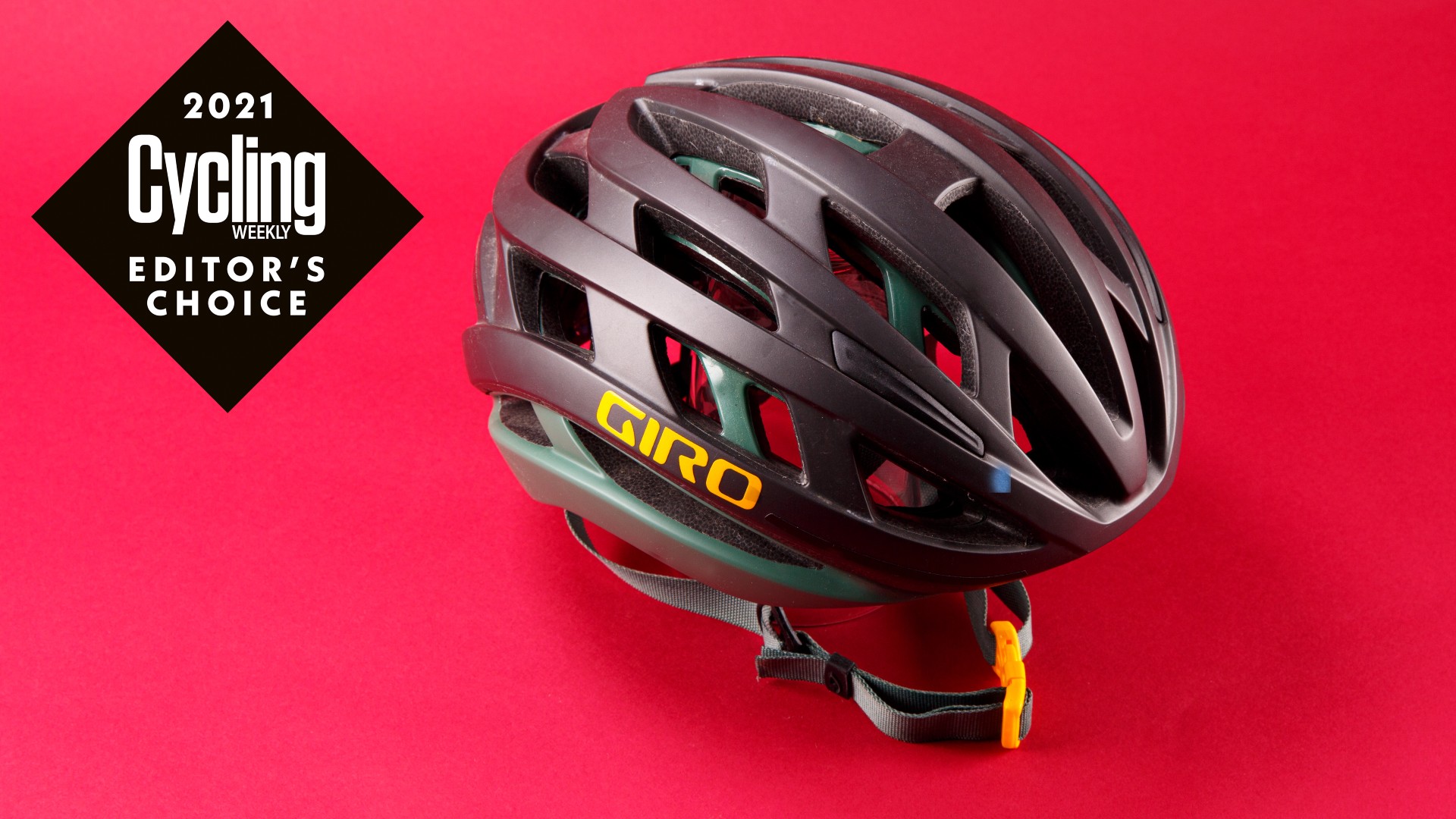
The Giro Helios Spherical is a superb lid that does it all and, like the more expensive Aether, integrates the latest safety tech without compromising comfort or weight.
-
+
State-of-the-art MIPS
-
+
Lightweight
-
+
Comfortable
-
+
Aerodynamic
-
+
Good looking
-
-
No eyewear dock
You can trust Cycling Weekly.
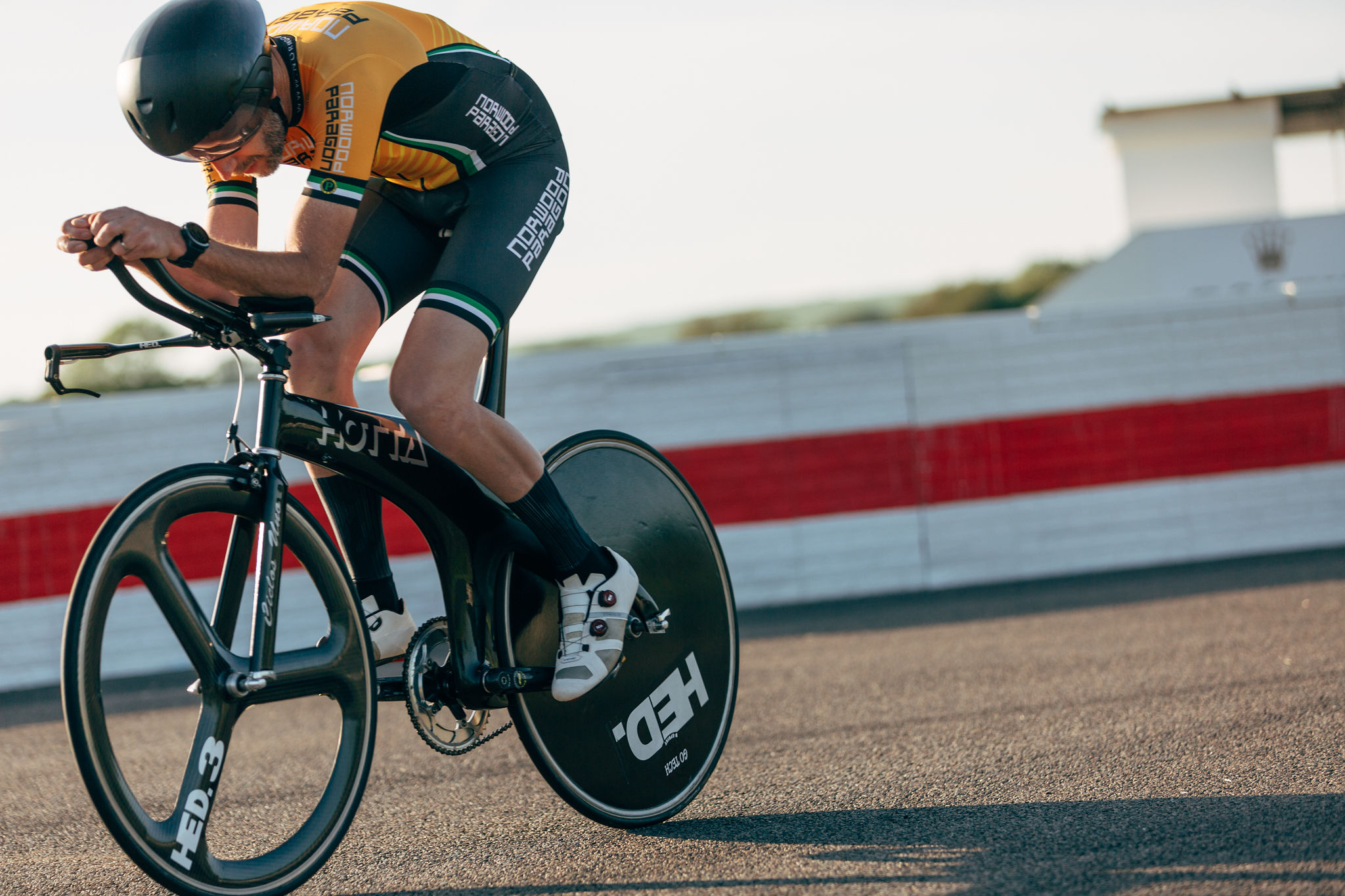
The Giro Helios Spherical is the US brand's second road helmet to use Spherical MIPS protection, the first being the £269.99 Aether which we awarded a perfect score and which made our Editor’s Choice line-up in 2020.
The Helios has a lower price and an expanded remit: whereas the Aether was designed and styled purely for the road, the Helios is for “road cyclists, gravel enthusiasts and adventure riders.”
>>> Best road cycling helmets: buyer's guide
I’m giving the Helios another perfect score because in practical terms it does everything the Aether can do and even improves on it in some areas; it has a broader appeal, and it’s priced lower than the Aether.
Giro Helios Spherical: construction
‘Spherical’ refers to Giro’s exclusive MIPS-powered technology that it developed with the Swedish company in its own lab. Spherical tech does away with the clear (or sometimes yellow) plastic MIPS liner of the original helmets that sat directly against the head and got a bit sweaty, sometimes also pulling your hair. With Spherical, the sliding MIPS layer is integrated into the helmet itself: it's basically an EPS shell within an EPS shell. In this case, one is black and the other is green, and they can move independently of each other with 10-15mm of travel thanks to a low-friction layer sandwiched between them and secured with elastomer anchors.
So far, all three helmets with this system (the Aether plus the Giro Tyrant and Giro Manifest mtb helmets) have received a five-star rating from independent safety testers Virginia Tech.
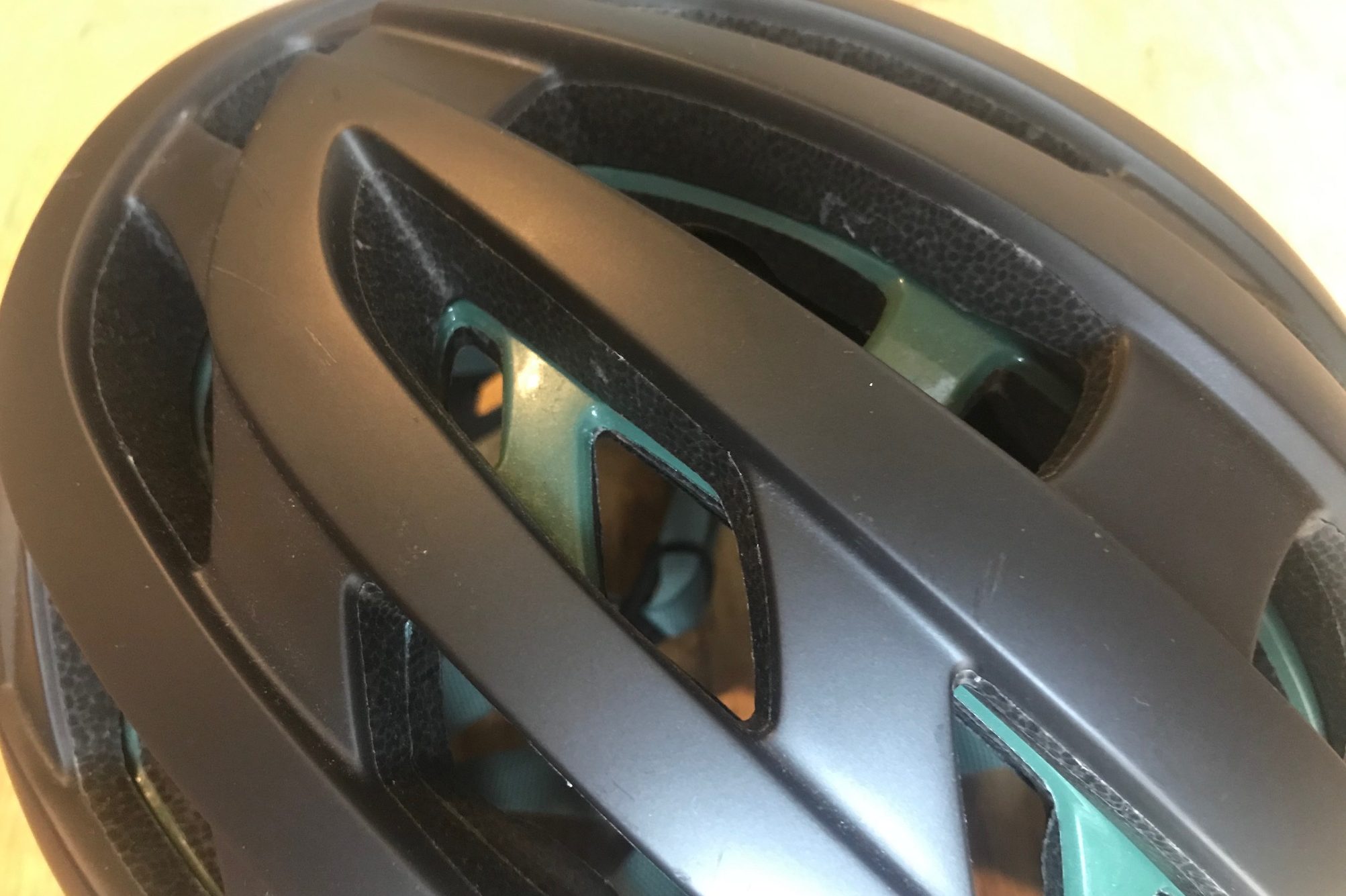
The idea of MIPS, whether Spherical or in its original format, is to add protection against rotational forces transferred to the brain in an angled impact.
The Helios is very slightly lighter than more expensive the Aether – 260g v 269g in medium – and according to Giro it also tested faster in the wind tunnel.
So why does it cost less? According to Giro, cooling is two per cent less efficient since the Aether has bigger (but fewer) channels – 11 compared to the Helios’s 15 – but for UK riding who’s going to notice that? And the Helios uses the Roc Loc 5 Air closure system rather than the Roc Loc 5+ Air and again, the difference is so minimal that you’ll probably struggle to tell the difference. I found the Helios fitted so well anyway that the closure system was a mere formality.
The ride
Spherical MIPS feels like a welcome return to wearing a normal helmet after the original plastic sheet-type MIPS system.
As for fit, it’s obviously best in non-pandemic times to try on helmets and find out which ones suit your head shape. I’ve read frequently that Giro helmets suit round heads better, but ever since my first Giro – the Pneumo of the early 2000s – I’ve found Giro helmets fit my more oval head very well and that includes the Helios. There are no pressure points front or rear and it doesn't move down the forehead in the cycling position when the neck is low but the head looks up. In fact it's the most 'invisible' feeling helmet I've worn for a good while – I couldn't ask for a more comfortable lid.
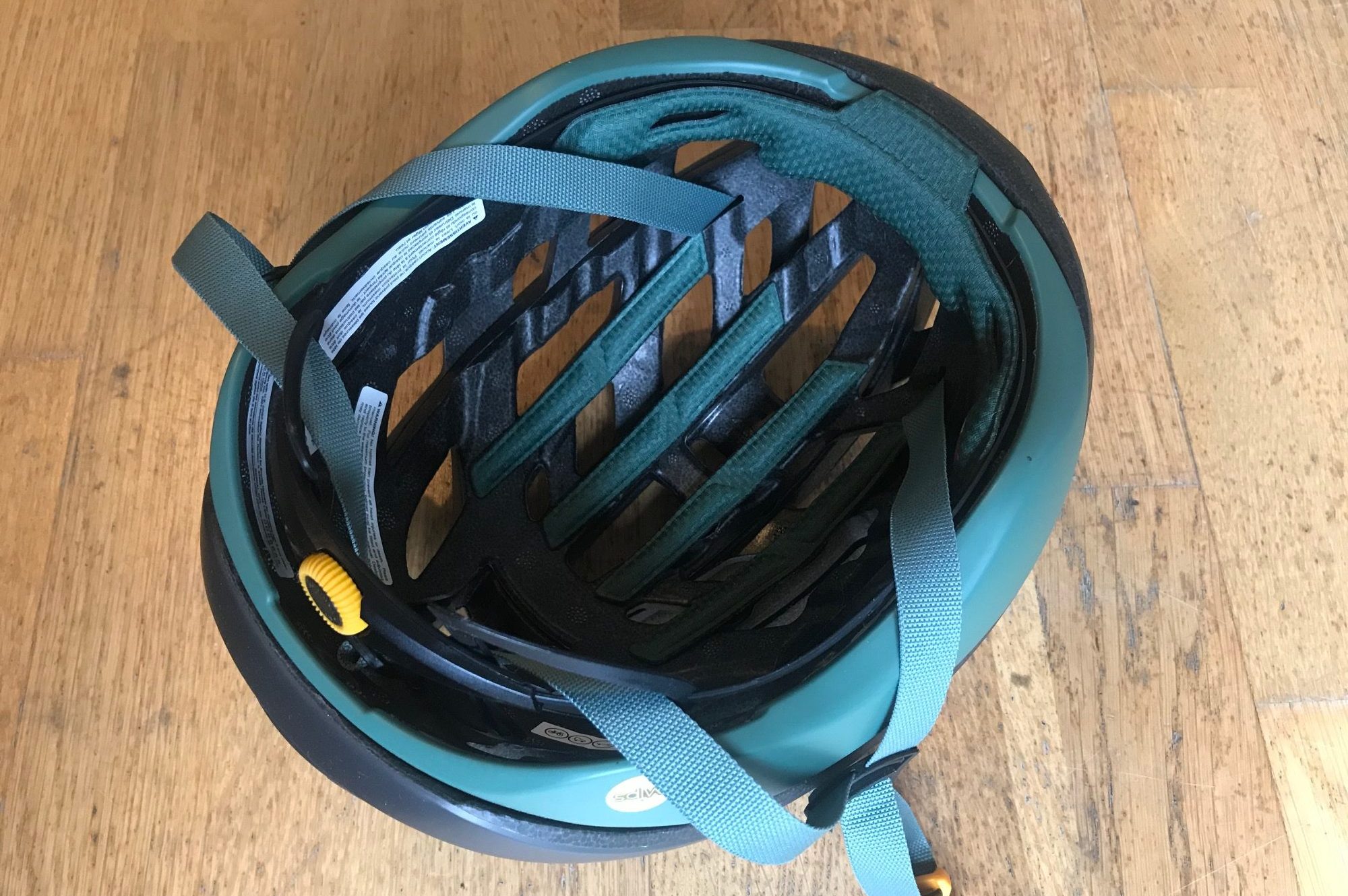
Overall it has a lower-volume look than the Aether – it’s close over the ears with no mushrooming, and sits directly on the top of the head.
Since it was only launched at the end of last year I haven’t been able to test it in higher temperatures, but I can confirm that airflow is good.
The one thing it does seem to lack is an eyewear dock feature – I couldn’t get my sunnies to stick in any of the holes satisfactorily – but I’m not going to deduct a point for that.
Value
The Helios priced lower than the Aether, but the Giro Synthe, which doesn’t use Spherical MIPS, is £209.99. The Met Trenta 3K is more expensive at £270, though the Trenta MIPS is priced at the same level; the Abus Airbreaker is also priced the same.
Any helmet over the £200 mark is firmly in the premium category, but here you’re paying for the Spherical MIPS tech, which is arguably the state of the art, in a supremely comfortable helmet that’s also lightweight, aerodynamic and good looking.
This is my new favourite helmet – and it's even in my club colours!

Thank you for reading 20 articles this month* Join now for unlimited access
Enjoy your first month for just £1 / $1 / €1
*Read 5 free articles per month without a subscription

Join now for unlimited access
Try first month for just £1 / $1 / €1
Get The Leadout Newsletter
The latest race content, interviews, features, reviews and expert buying guides, direct to your inbox!
Simon Smythe is a hugely experienced cycling tech writer, who has been writing for Cycling Weekly since 2003. Until recently he was our senior tech writer. In his cycling career Simon has mostly focused on time trialling with a national medal, a few open wins and his club's 30-mile record in his palmares. These days he spends most of his time testing road bikes, or on a tandem doing the school run with his younger son.
-
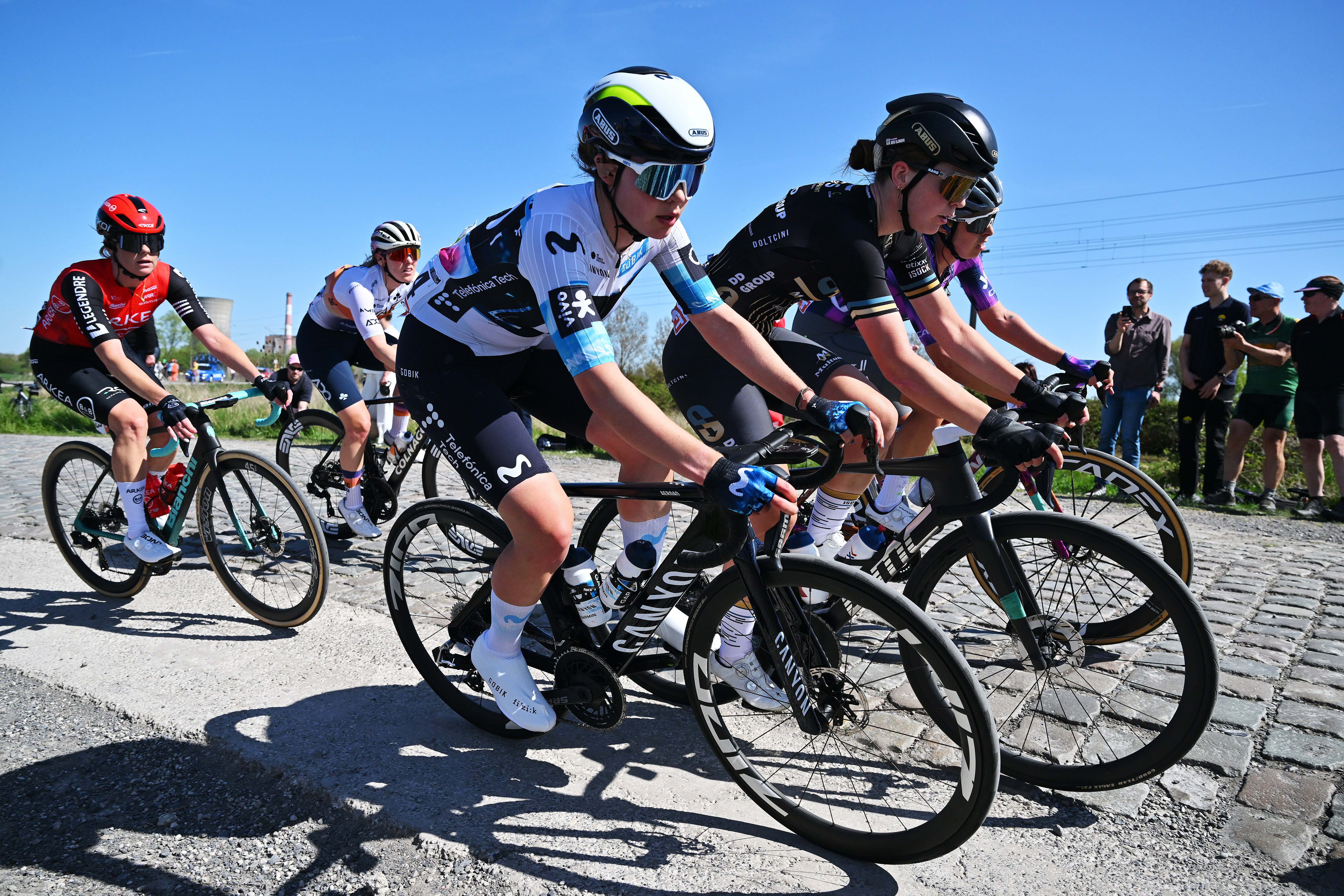 'I have an exam in a month and a half' - Carys Lloyd becomes Paris-Roubaix's youngest ever rider
'I have an exam in a month and a half' - Carys Lloyd becomes Paris-Roubaix's youngest ever riderBritish teenager and A-Level student makes it to the velodrome on debut
By Tom Davidson Published
-
 'I wasn't thinking about winning, I just wanted to make SD Worx work' - Pauline Ferrand-Prévot, the accidental Paris-Roubaix Femmes champion
'I wasn't thinking about winning, I just wanted to make SD Worx work' - Pauline Ferrand-Prévot, the accidental Paris-Roubaix Femmes championVisma-Lease a Bike's star Frenchwoman was never supposed to ride Roubaix, but her presence paid off for her and her Dutch team
By Adam Becket Published
-
 Pauline Ferrand-Prévot: ‘It wasn’t the plan to ride Roubaix but I felt good so I said why not?’
Pauline Ferrand-Prévot: ‘It wasn’t the plan to ride Roubaix but I felt good so I said why not?’Frenchwoman admits that her aim for her unexpected Roubaix debut was to support Visma-Lease a Bike teammate Marianne Vos
By Peter Cossins Published